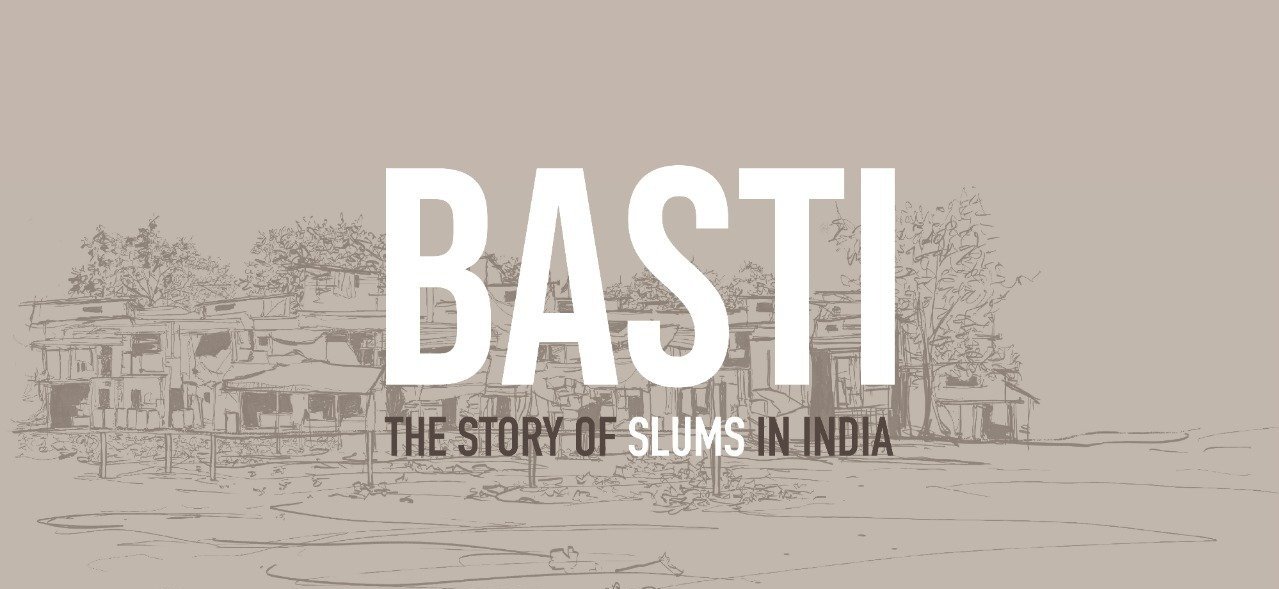
Film Synopsis
Bali is an ambitious researcher living in Mumbai who is engaged to be married. Madhu is an entrepreneurial seamstress in Bengaluru who is trying to grow her business while raising a disabled daughter. Jyoti is a resourceful cook in Delhi who continues to work every day even though her grown children tell her it’s time to retire. These three seemingly unconnected people have one critical thing in common: they live in a Basti.
And they’re not alone. They are just 3 of the estimated 100 million Indians that live in a Basti. Or, as these communities are known outside of India, a slum. Across the subcontinent, in sleepy towns and exploding megacities, India’s urban poor live in bastis without adequate housing, water, electricity, or toilets. These harsh living conditions extract a serious toll on nearly every resident’s physical and mental health. The harms are particularly severe for children.
The standard explanation for why people live in these conditions is poverty. India’s bastis are populated by poor people living in a poor country. But that is only part of the story. The part that doesn’t get told is that India has adopted policies that stop better homes from being built and ensure that basic services are only available at exorbitant prices.
Basti takes you into Bali, Madhu, and Jyoti’s homes so you can learn their daily routines, how government policies make their lives difficult, and their hopes for the future. Basti talks to community leaders and leading researchers to explain what cities can do to help make their dreams a reality. And hopefully, by doing so, help ensure that the millions of children living in India’s urban ghettos are not condemned to a lifetime of poverty.
Director’s Statement
There are slums in almost every Indian city. As a lifelong resident of Mumbai, I walk by these communities—often called “Bastis” in Hindi slang—nearly every day. But like many Indians, I did not understand the lives of the people that call these bastis home or know the reasons why India’s urban poor have no choice but to live in slums.
I had the good fortune of delving into this issue of slums with the support of professors from the University of Chicago that spent years running a project studying life in slums across India. They worked with Indian researchers to interview hundreds of people living in slums, collect data on those communities, and document life in bastis from the perspective of the residents. After studying their work and interacting with the people that live in slums, I realised that they understand their own issues better and in more depth than any policy maker or outsider. I thus not only wanted to tell the story in a way that was well researched but also captured the aspects of their diverse experiences which are universal, and allowed residents of bastis to speak for themselves.
To do this, we decided to follow three different people, living in three different cities, working in three different professions, at three different life stages: Bali, a researcher from Mumbai in his mid-twenties who is engaged to be married; Madhu, a seamstress from Bengaluru in her late-thirties who is a wife and parent; and Jyoti, a cook from Delhi in her early-sixties who’s children are grown.
Focusing on their lives also allowed us to explore topics that are too often ignored, and elevate voices that are too often marginalised, in Indian society. For example, Bali talks movingly about the widespread mental health problems in slums; Madhu explains the obstacles she faces while raising a daughter with a disability; and Jyoti shares how being a widow drives her to find fulfillment through work that she loves.
While making the film, we spent countless hours filming in bastis. But we were not trying to find the most shocking images of poverty. Instead, we tried to authentically capture everyday life: children playing, families cooking, and people earning a living. We took this approach because the film’s goal is not to evoke pity. Instead, it is to document life in the communities that us more privileged Indians walk past without taking the time to understand. And while doing so, explain the public policies we could change to make life just a little easier for our less fortunate neighbours.